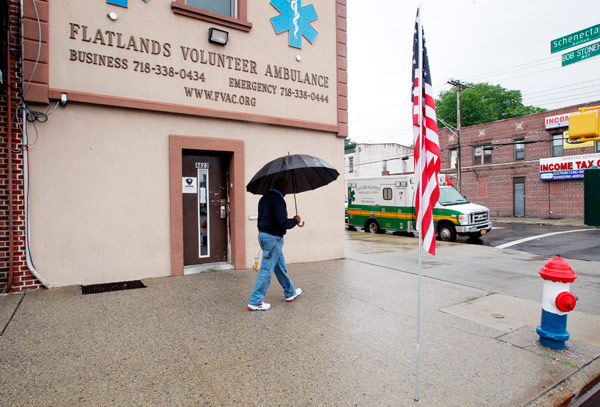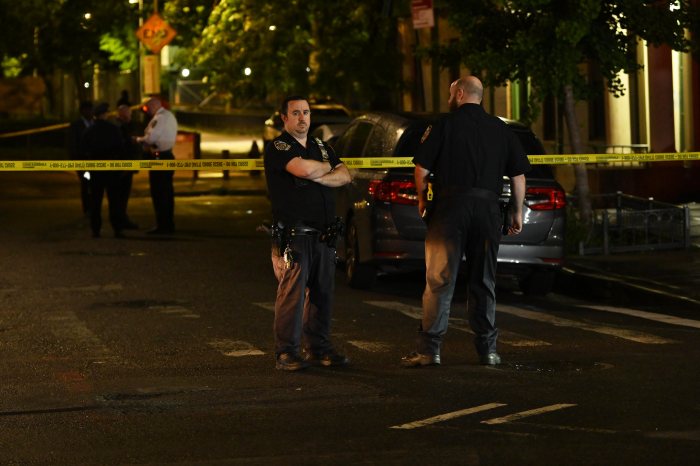One southern Brooklyn pol is hoping to combat food insecurity across the five boroughs, while also taking a load off the city’s small businesses.
Legislation introduced this month by Coney Island Councilmember Mark Treyger would create an incentive program for eateries to donate their excess food to nonprofits and, in turn, catch a break from certain city agencies.
Treyger’s bill would require the city’s Department of Sanitation and Department of Consumer and Worker Protection to establish violations that would be eligible for the relief program.
“I think this is a common-sense piece of legislation that is a win-win on many levels,” Treyger told Brooklyn Paper. “It helps address the very real issue of food insecurity in our city, it helps address the burden that many of our small businesses are facing particularly during the pandemic, and it also helps address food waste which is a very real issue.”
The bill was introduced before the City Council’s Committee on Small Business on Sept. 17, where it received support from DSNY, who described it as a sensible plan to bridge the gap between excess food and food insecurity. The legislation will go for a vote before the committee in the coming weeks, followed by a vote from the full City Council.
“The administration agrees with the intended purpose of this bill,” said Bridget Anderson, the deputy commissioner for recycling and sustainability, “which would offer regulatory relief to some small businesses while incentivizing the donation of excess food to non–profits for the purposes of feeding hungry New Yorkers.”
In a previous feasibility study, the agency identified businesses covered by the commercial organics law as potential candidates for a penalty mitigation program related to food donation, Anderson said in her testimony.
The sanitation rep added that the program should be managed in a way to not create a network of unwanted foods and should be careful to not disrupt any existing partnerships between food establishments and non-profits.
“Any food donation program created as a penalty mitigation program should be carefully tailored to avoid creating a glut of unwanted or inedible food,” she said. “In addition, many food businesses already engage in best practices for food donation and we should be careful not to disrupt these existing relationships.”
The legislation states that violations are only to be waived if the small business has not received the same violation or one very similar within six months, enters into an agreement to donate excess food for a period determined by the agency issuing the violation and provides the department with documentation from the nonprofit that the business completed the agreement.
Treyger’s bill is especially timely, with City Harvest reporting that food insecurity has skyrocketed across the five boroughs since the onset of the coronavirus pandemic last March. New York City has gone from 1.3 million to 1.5 million residents not sure when their next meal is going to be, reflecting a 38 percent increase since pre-pandemic, according to the city’s largest food rescue organization.
Additionally, the group says, one out of three children are experiencing food insecurity.
“Even before the COVID-19 pandemic, New York City was facing a profound hunger crisis particularly in the marginalized communities that City Harvest has long served,” reads City Harvest’s website. “Those numbers surged during the pandemic and show no signs of receding.”

















